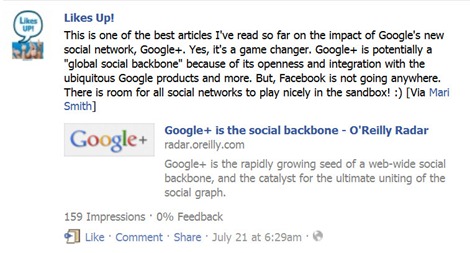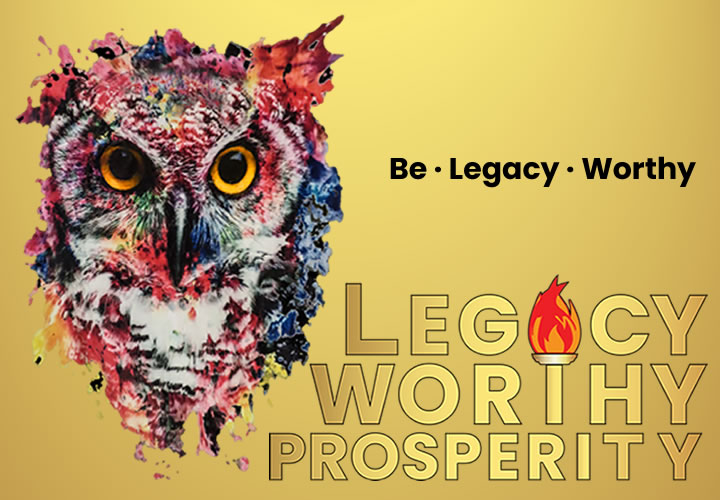Likes UP: Google Plus Game Changer

Likes UP: Google Plus Game Changer
Google+ is the social backbone – O’Reilly Radar
Excerpt 1 :
Social backbone services
Which services will the social backbone provide? We can extract these from those provided by today’s web and social software applications:
- Identity — authenticating you as a user, and storing information about you
- Sharing — access rights over content
- Notification — informing users of changes to content or contacts’ content
- Annotation — commenting on content
- Communication — direct interaction among members of the system
These facilities are not new requirements. Each of them have been met in differing ways by existing services. Google and Amazon serve as identity brokers with a reasonable degree of assurance, as do Twitter and Facebook, albeit with a lesser degree of trust.
A host of web services address sharing of content, though mostly focused on sharing the read permission, rather than the edit permission. Notification originated with email, graduated through RSS, and is now a major part of Twitter’s significance, as well as a fundamental feature of Facebook. Annotation is as old as the web, embodied by the hyperlink, but has been most usefully realized through blogging, Disqus, Twitter and Facebook commenting. Communication between users has been around as long as multi-user operating systems, but is most usefully implemented today in Facebook chat and instant messaging, where ad-hoc groups can easily be formed.
Excerpt 2 :
Toward the social backbone
Computers ought to serve us and provide us with means of expression.
A common, expressive and interoperable social backbone will help users and software developers alike. Liberated from information silos and repeat labor of curating friends and acquaintances, we will be free to collaborate more freely. Applications will be better able to serve us as individuals, not as an abstract class of “users”.
The road to the social backbone must be carefully trodden, with privacy a major issue. There is a tough trade-off between providing usable systems and those with enough nuance to sufficiently meet our models of collaboration and sharing.
Obstacles notwithstanding, Google+ represents the promise of a next generation of social software. Incorporating learnings from previous failures, a smattering of innovation, and a close attention to user need, it is already a success.
It requires only one further step of openness to take the Google+ product into the beginnings of a social backbone. By taking that step, Google will contribute as much to humanity as it has with search.
Edd Dumbill is the chair of O’Reilly’s Strata and OSCON conferences. Find on Google+. Technologist, writer and conference chair. Incurably curious
#LIkesUP




